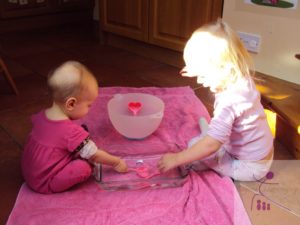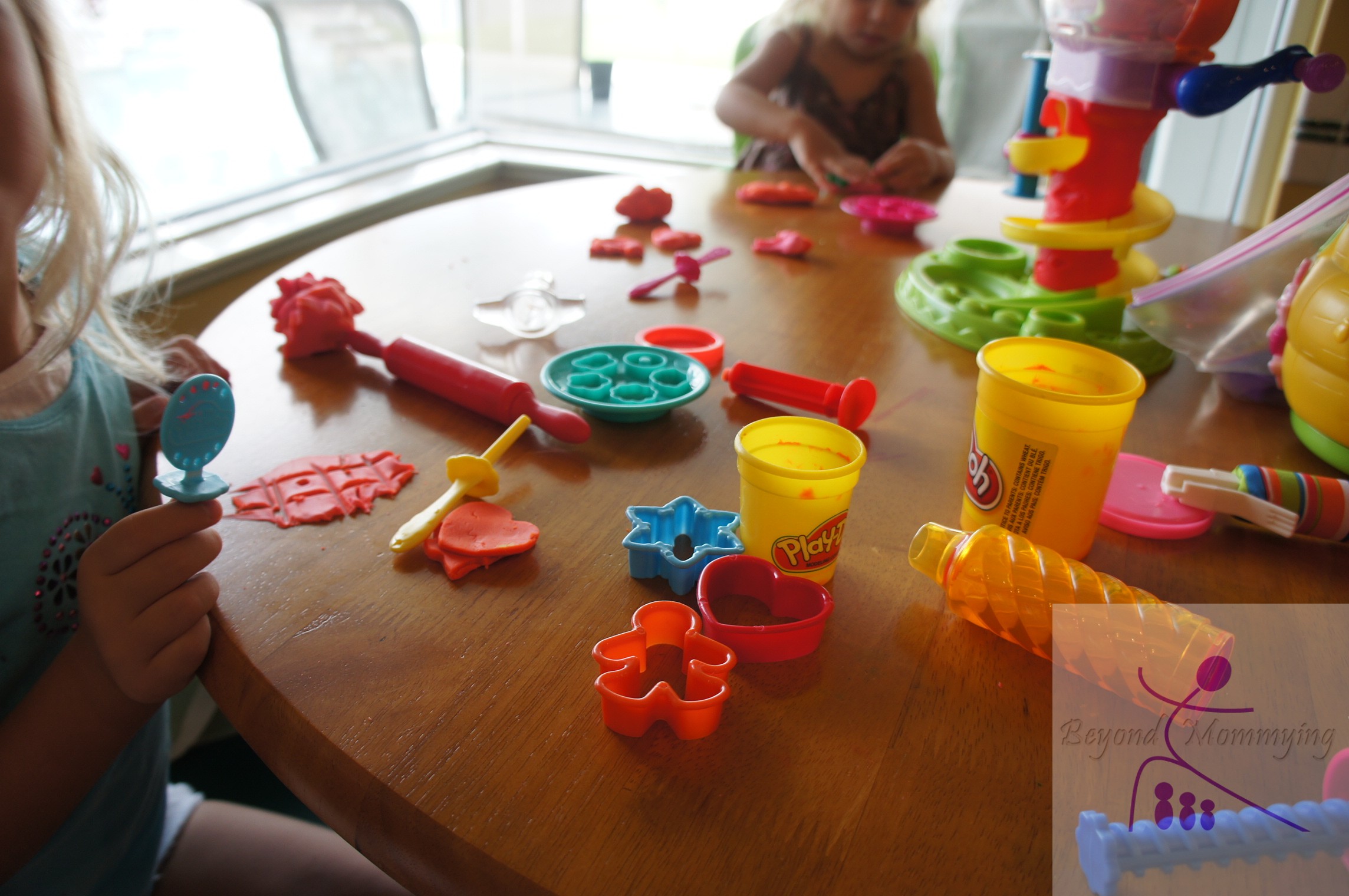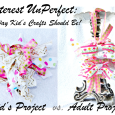Sensory play, which is simply any activity which utilizes any of the five senses, is crucially essential to children’s development in many different ways. It is known that most people learn best by DOING a task rather than simply being told. Sensory play helps children to experience their world and build an understanding of how things work. When done properly, it also helps children gain other important skills and develop in other areas.
Sensory play can expand children’s vocabulary. Any activity young children engage in should include a dialogue but this is especially important with sensory play. The possibilities for introducing new vocabulary are endless. What does it feel like? What does it look like? What does it smell like? Does it make noise? If you can taste it, what does it taste like? Do you like the way it is or is it too cold/slimy/stinky/noisy?
Sensory play also cultivates problem solving and creativity. Give a child a bucket of rice or water and some everyday utensils and see what happens. Children will dig right in (literally) and start scooping, stacking, moving, rearranging and exploring. All of this uses independent thinking which every child needs more of!
 Sensory play fosters social and emotional health. When children are given free rein to play and explore it develops their sense of self-confidence. When you play two or more children with the same sensory items or experience they learn respect, patience and teamwork. Children learn to work through their disagreements when one child tries to destroy another child’s work or is trying to hog all the tools.
Sensory play fosters social and emotional health. When children are given free rein to play and explore it develops their sense of self-confidence. When you play two or more children with the same sensory items or experience they learn respect, patience and teamwork. Children learn to work through their disagreements when one child tries to destroy another child’s work or is trying to hog all the tools.
Sensory play develops fine motor skills. Fine motor skills are those of the hands and sensory play helps children develop the muscles of the hands and refine the tiny hand and finger movements we use in our everyday lives.
Sensory play helps with the integration of the sensory system. When a child experiences (or senses) something the feeling is transmitted to the brain. The brain takes those feelings and processes them, “files” them and creates a new context for that feeling. When two or more senses transmit at the same time, it builds even stronger connections and contexts.
 It is important to provide children with lots of opportunities to sense new things. Here are five easy things you can do today to encourage sensory development (and all the skills that go along with it!):
It is important to provide children with lots of opportunities to sense new things. Here are five easy things you can do today to encourage sensory development (and all the skills that go along with it!):
- Stop and smell the roses (literally)
- Let your child help you cook (and taste test) something you’ve never had before
- Let your child walk barefoot in the grass, sand, mulch, mud…
- Listen to music from another culture
- Discuss your favorite work of art







